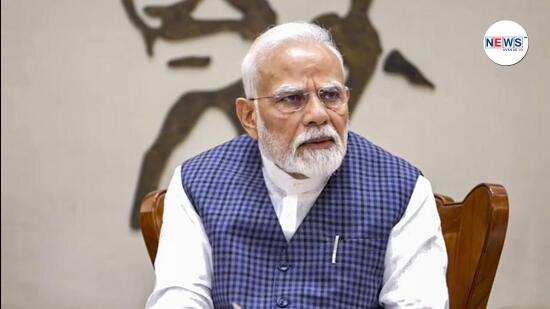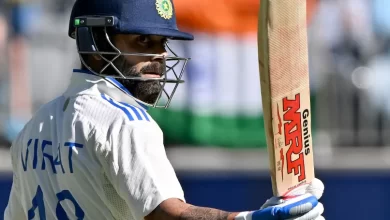
When US vice president JD Vance telephoned Prime Minister Narendra Modi on May 9 to discuss an American assessment of a dramatic escalation by Pakistan, the prime minister told him New Delhi’s response would be “more forceful, stronger, more devastating” than anything done by Islamabad, people familiar with the conversation said on Sunday.
India’s position – that there would be a greater and more forceful Indian response to every Pakistani military action – was reiterated by external affairs minister S Jaishankar in conversations with his counterparts from across the world following the launch of Operation Sindoor on May 7 in retaliation for the Pahalgam attack, the people said on condition of anonymity. These interlocutors included US secretary of state Marco Rubio.
Even before the launch of Operation Sindoor, which initially targeted terrorist infrastructure at nine sites in Pakistan and Pakistan-occupied Kashmir, India’s leadership made it clear to interlocutors across the world that there should be no doubts about Indian strikes against terrorists based on Pakistani soil.
“In all our messages after April 22, we said we will hit the terrorists, there will be consequences. We were very, very clear from day one,” one of the people said. “They fire, we fire. They stop, we stop. There’s no ambiguity about this.”
While aspects of the conversation between Vance and Modi were reported by CNN and New York Times – including the US assessment of the high probability of a dramatic escalation of violence and the suggestion of a potential off-ramp acceptable to the Pakistani side – the prime minister’s response has not been reported so far. The US administration decided that Vance should call Modi as he recently visited New Delhi and had developed a rapport with the prime minister.
“Mr Modi listened to Mr Vance and then told him if the Pakistanis do anything, please be assured that they will get a response more forceful, stronger, more devastating than anything they do. They need to understand this,” the person cited above said.
When the Pakistani military attempted to strike 26 Indian military facilities on May 10, the Indian side responded with massive attacks on eight Pakistani air bases with long-range weapons, the people said. Hours later, the two sides reached an understanding on halting all military actions and firing.
The Americans accepted that there would be retribution, and the Pakistani side approached the US administration after India’s massive military strikes on May 10, the people said. It was then that Rubio called Jaishankar and said Pakistan was willing to accept an off-ramp, the people said. The Indian side, however, insisted on direct contact from the Pakistani side without any back channels, they added.
The contacts between India and the US began a short while after the Pahalgam terror attack of April 22, when Modi was in Saudi Arabia on an official visit. US President Donald Trump dialled the premier to convey his solidarity and support, and the two sides were in touch on the press statement issued by the UN Security Council on April 25 to condemn the terror attack. The Indian side ensured this statement featured a strong condemnation despite Pakistan’s presence in the Security Council as a non-permanent member.
During subsequent phone calls between Jaishankar and Rubio, and defence minister Rajnath Singh and his counterpart Pete Hegseth, the Indian side conveyed its intention to respond to the Pahalgam attack by hitting terrorist infrastructure within Pakistan, the people said.
Once Operation Sindoor was launched, the Indian side told the US that New Delhi would only respond to Pakistan’s military actions. Similar messages were conveyed to other interlocutors from other countries, such as the UK and EU member states, they said.
“The clear message that we gave to our interlocutors is that we cannot equate the victim and the perpetrator. This even-handedness is not going to be tolerated anymore,” a second person said, while noting that there was universal condemnation of the Pahalgam attack that targeted tourists and civilians.
“In each case, the Indian military responded so fast that there was no time for anyone to come and tell us not to respond because we had already responded,” the first person said. “The speed of the military response didn’t put us in a diplomatic spot. Every round, we hit the Pakistanis harder than they expected.”
The Indian side also didn’t encourage shuttle diplomacy of the sort that was witnessed during past crises sparked by cross-border terrorism emanating from Pakistan. While Saudi Arabia’s deputy foreign minister Adel al-Jubeir made unscheduled visits to India and Pakistan last week and Iranian foreign minister Seyed Abbas Araghchi also travelled to the two countries, both West Asian countries displayed an understanding of India’s stance on the Pahalgam attack, the people said.
“We don’t think all Islamic nations are behind Pakistan. There is nothing to suggest an axis of Islamic countries,” the first person said. The people noted there was a “fair amount of churn” within the Organisation of Islamic Cooperation (OIC) on drafting a resolution on the Pahalgam attack, and it was significant that the resolution, in the context of Jammu and Kashmir, included a condemnation of terrorism.
The people acknowledged there were “no surprises” about China’s role in the entire episode, given Beijing’s frequent description of Islamabad as an “ironclad brother”, and this extended to the Pakistani use of Chinese military equipment during the recent strikes.





